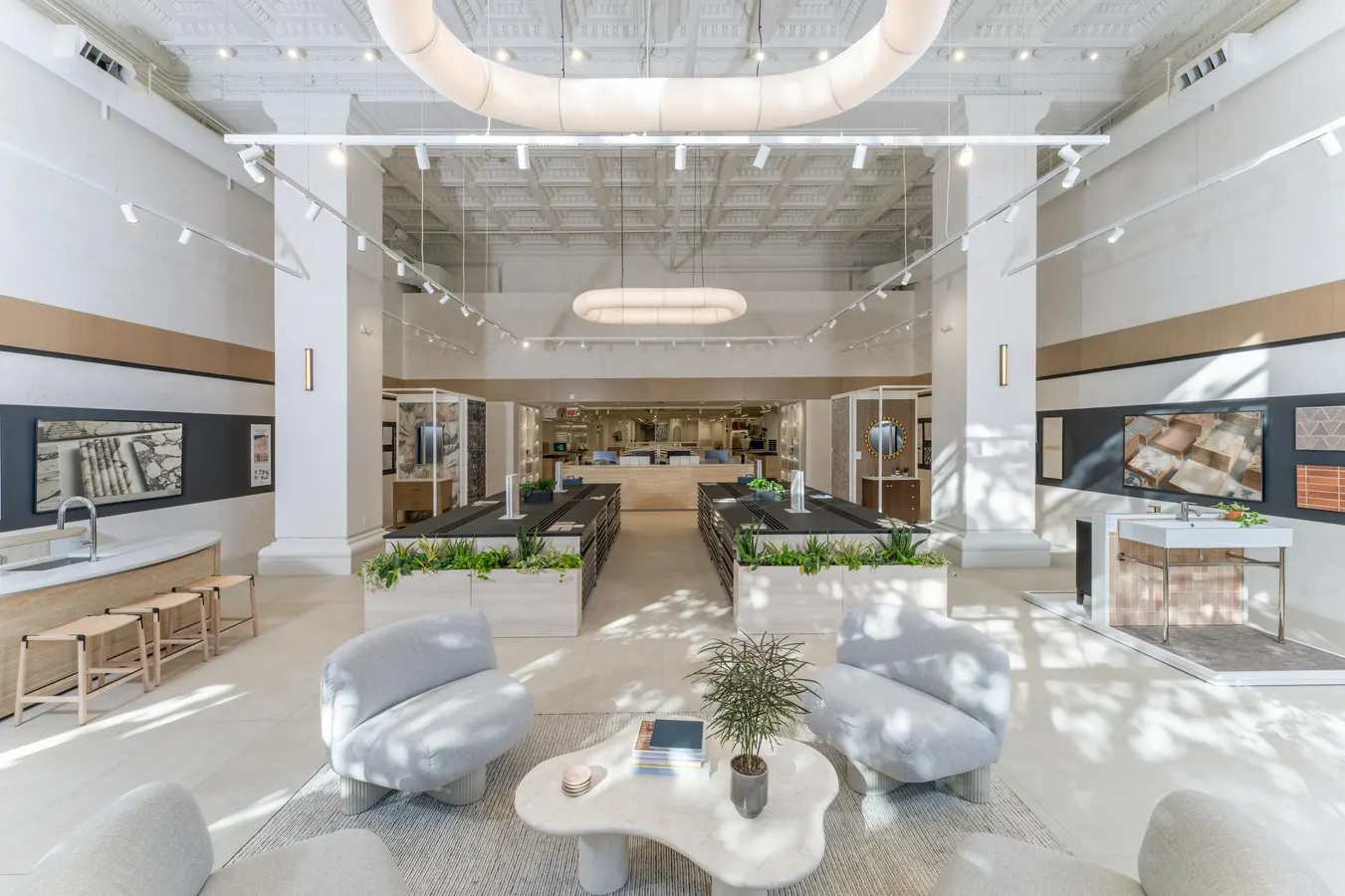Copyright forbes

TileBar's Washington D.C. store opens October 23rd in Logan Circle. Courtesy of TileBar TileBar, the leading design resource for tile and bath, has officially opened its showroom in Washington, D.C., marking a significant milestone in the brand's retail expansion. Located in the heart of the vibrant Logan Circle neighborhood, this new location not only strengthens TileBar's presence in the U.S. but also sets the stage for a series of future showrooms that will reshape the way customers experience tile shopping. Founded in 2009, the brand started as a digital-first company, providing a curated selection of high-quality tiles and bath accessories to both residential and commercial clients. The company's vision from day one was to deliver a modern, innovative shopping experience, leveraging its digital expertise to offer a diverse array of products. However, as the company's client base grew, it became evident that there was a need for physical spaces where customers could interact directly with the products. "Once the website was up and running, once we had representatives calling on that community, it made sense for them to have a place to meet. Our next was to open in Paramus, New Jersey, which took some time, and I would say that was a slow step forward,” shared Ira Melnitsky, TileBar's CEO, adding, "we're excited about embarking on our physical retail expansion. It's going to be aggressive, it's going to be fast, and it's going to be something completely different than the industry has seen before." The showroom is located at 1526 14th St, next to The Shade Store and around the corner from Whole Foods. Courtesy of TileBar The brand now has three locations open, with the new D.C. showroom being the latest step in TileBar's retail expansion strategy and several more on the way. The opening of this showroom reflects the company's commitment to offering an elevated, hands-on design experience for both designers and homeowners. The TileBar Retail Experience TileBar's new Washington, D.C. showroom, designed in collaboration with global architecture firm Gensler, takes the company's vision to the next level. The showroom integrates three guiding principles: Welcome, Warmth, and Workshop,all aimed at creating an immersive and inspiring environment for customers. MORE FOR YOU The first principle, Welcome, is felt as visitors step into the space. Upon entering, customers are greeted by a hospitality bar and a striking feature wall showcasing an array of specialty tiles. "When you invite someone into your home, the first thing you do is offer them something to drink, make them feel comfortable," Melnitsky explains. "We'll be doing all of those things." The staff is trained not only on the product but on how to provide that hospitality experience. The principle of Warmth is reflected in the space's aesthetic. The showroom features a palette of creamy whites, natural textures, and soft lighting that creates a calm, luxurious atmosphere. The design is meant to balance functionality and inspiration, allowing the tiles to be the focal point while creating a welcoming space for customers to explore. Kate Kirkpatrick, Principal and Strategy Director at Gensler, adds, "With TileBar's D.C. showroom, we envisioned a destination that speaks to the creator in everyone, whether design professional or homeowner," said Kate. "We wanted to bring a designer's mind to every element of the experience so that it reflects TileBar's brand of high-touch service and confidence given to clients throughout the tile selection process. TileBar's D.C. showroom is designed by Gensler and centers around three core principles - Warmth, Welcome, and Workshop. Courtesy of TileBar Lastly, there is the Workshop experience. TileBar has designed dedicated zones within the showroom where customers can collaborate on their design projects. The showroom has spaces where customers can mix and match tiles, build their design project room by room, and even bring lunch to work through their ideas. It's a hands-on, creative space that fosters collaboration. Unlike many traditional showrooms, TileBar's D.C. location emphasizes a physical, tactile experience. While technology is used for inspiration and digital tools are available for clients, the showroom's design focuses on physical interaction with the products. TileBar’s Retail Expansion The Washington D.C. showroom is just the beginning of TileBar's showroom expansion, with more locations to come in places like Miracle Mile in Manhasset, New York, The Village District in Raleigh, North Carolina, and 3rd Avenue in Burlington, Massachusetts. This expansion comes at a time when other home renovation brands are also increasing their physical retail presence. Brands like Lick, a UK-based direct-to-consumer paint brand with a showroom in London, and California-based Fireclay Tile, which now has eight showrooms across the U.S., have found success in the direct-to-consumer space. Home construction and renovation products used to be primarily sold through third-party retailers, but they are now seeing a path in the direct-to-consumer space. TileBar has designed dedicated zones within the showroom where customers can collaborate on their design projects. Courtesy of TileBar Although the home goods space has struggled, and some brands have slowed their store expansion, TileBar has continued to thrive. "We have very strong growth, even in a period where other people are seeing a slowdown," Melnitsky shares. "We are still a very high-growth company." Looking to the future, TileBar plans to continue creating showrooms that are not just retail spaces but destinations where customers can interact, collaborate, and find inspiration. The brand's omnichannel approach, combining physical showrooms with a robust digital platform, positions the company to lead in the evolving retail landscape. As the company continues to expand, it's clear that it is redefining how customers experience tile. The focus on design-driven, hands-on experiences is setting a new standard for the industry, creating an innovative path forward for home goods retailers. Editorial StandardsReprints & Permissions



